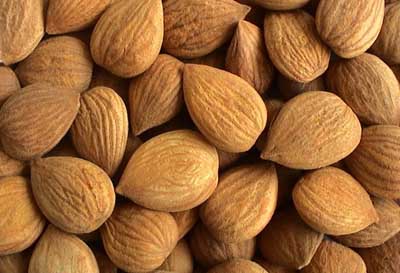杏仁
| Name (CN) | 杏仁 (Xìng rén) |
|---|---|
| Synonyms (CN) | 杏子、得儿、苦杏仁、杏核仁、北杏仁、光杏仁、炒杏仁、燀杏仁、甜杏仁、南杏仁、八担杏、叭哒杏仁、巴旦杏仁 、 北杏 、光北杏、 光中杏 |
| Name (EN) | Apricot Root, Apricot Seed Equivalent Plant: Prunus Armeniaca Var Ansu |
| Scientific name(s) | Prunus Armeniaca |
| Used section | Seeds |
| Taste | Bitter,Poisonous。 |
| Channel Tropism | Induce in the lung and large intestine meridians. |
| Cold/Hot properties | Slightly Warm |
| Group | Plant [Nut Or Seed] |

| Origin | The dried bitter seeds of apricot or bilberry of the Rosaceae family. |
|---|---|
| Function and treatment | Expectorant, relieving cough, calming asthma and laxative. It is used for treating external cough, asthma, laryngeal paralysis, constipation and intestinal dryness. |
| Origin and best harvesting period | Apricot is mostly cultivated in low mountainous areas or hilly mountains. It is distributed in Northeast, Northwest, North China and Henan, Shandong, Jiangsu, Taiwan and other regions. The mature fruits are harvested in summer, the flesh and shell are removed, the seeds are taken out and dried in the sun. |